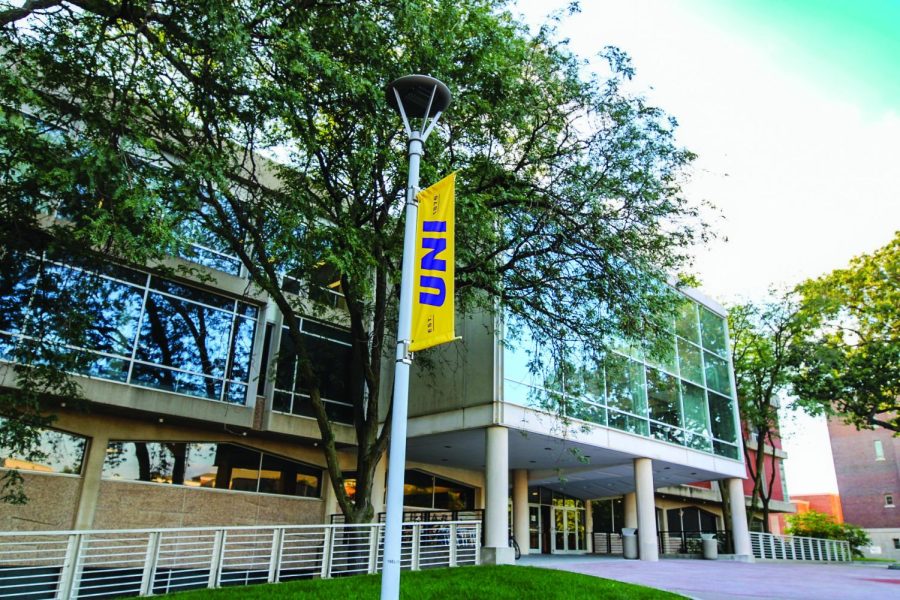Rod Library program strives to make course materials accessible
Rod Library is offering mini-grants that professors can apply for by Oct. 12. The grants aim to help faculty transition their classes into using existing free materials to lower the cost of textbooks for students.
Oct 9, 2022
According to a UNI student survey, over half of UNI students cannot or do not purchase required course materials because they simply cannot afford it. Rod Library’s Textbook Equity Program aims to change that statistic.
While the program was founded in 2016, Rod Library continues to strive to make course materials more accessible for all students. Anne Marie Gruber serves as Rod Library’s liaison and textbook equity librarian, and she sat down with the Northern Iowan to talk about all things Textbook Equity at UNI.
“Accessing textbooks is not equal for everyone. Some struggle more than others to purchase books. Those that struggle with the most basic of needs find it even harder to access course materials,” she said.
UNI students are not alone in this struggle. It’s no secret that textbooks are incredibly expensive, and prices only continue to climb. Paying for tuition, housing, food and course materials can be a lot for college students. This is why the Textbook Equity Program was created.
Because it’s an equity program, there are many different ways students and professors alike can access free course materials. Faculty are able to fill out a form through Rod Library and submit their syllabi, and a faculty librarian will work with the professor to find free and affordable course materials for students.
Beyond fully transitioning to free and affordable course materials, professors can also place holds on course materials in the library for students to access throughout the semester. Semesterly holds allow for students to come into Rod Library on their own time and use the materials or books for three hours at a time. While books on semesterly hold are not allowed to leave the library for the sake of serving all students, digital media that is placed on a semesterly hold is allowed to be checked out for the night. Course reserves come at no additional cost to professors, and ensure that all students have access to the required course materials.
The Textbook Equity Program doesn’t just aim to provide free materials for those who can’t afford them, it also aims to allow course materials to take different forms to make them more accessible for those who may need accommodations.
“This levels the playing field,” Gruber noted. “Not only can we make materials affordable, we can change materials to make them accessible. Prints or images can be larger, we can alter materials, the list goes on.” Rod Library’s Textbook Equity Program wants to service as many students as possible, because when course materials are made accessible, course drop percentages go down and academic success goes up. For students where course material accessibility is a need, this can help tremendously.
Currently, Rod Library has a grant application open for professors who are interested in transitioning their class to free books using existing free materials. The grant application closes Oct. 12, so professors still have time to apply. The grant will provide the necessary funding for professors to switch over to existing affordable materials to make their class materials accessible to all students.
“Our biggest goal is to make sure all students have what they need to learn,” Gruber said.
Students or professors who are interested in making use of Rod Library’s Textbook Equity Program can find more information at https://guides.lib.uni.edu/oer, or can email Gruber at [email protected] to start making course materials more accessible.














